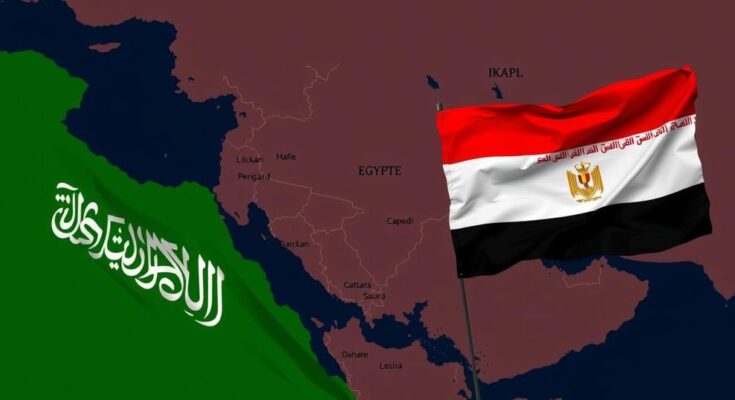Saudi Arabia, the UAE, and Egypt have recently responded to Israel’s military action against Iran with notably measured tones, indicating a potential shift in regional alliances. Each state emphasizes diplomatic engagement and regional stability over outright condemnation of Israel, suggesting a nuanced approach that acknowledges Israel’s role as a counterbalance to Iran’s influence.
In an increasingly complex geopolitical landscape, Saudi Arabia, the United Arab Emirates (UAE), and Egypt have opted for a muted response to Israel’s recent military action against an Iranian facility, reflecting a possible shift in their regional alliances. Unlike the traditional chorus of denunciations directed at Israel, their statements adhere to a tone of measured neutrality, underscoring a significant transformation in their diplomatic postures. The UAE’s response exemplifies this approach. While condemning the military action against Iran and calling for restraint, the UAE’s nuanced wording emphasizes the need for “dialogue and adherence to international law,” signaling a preference for diplomacy over confrontation. This statement is consistent with the UAE’s growing economic and security collaboration with Israel, particularly under the framework of the Abraham Accords. Similarly, Saudi Arabia’s reaction avoids direct condemnation. The kingdom described the attack as a “violation of sovereignty,” yet it underscores the importance of the “security and stability of the countries and people of the region.” This reflects a notable shift from Saudi Arabia’s former rhetoric, suggesting an underlying acceptance of Israel’s security activities amid a broader concern for regional stability and an implicit alignment in countering Iran’s influence. Egypt has further exemplified this diplomatic tact with its warning about the rising tensions that threaten regional and international security. By urging a “swift ceasefire” in the context of various conflicts, Egypt diverts attention from Israel’s actions and emphasizes collective security across the region. This broader perspective aligns with Egypt’s historical role as a mediator, as it aims to avert conflicts that could encroach upon its borders. The subtle yet significant responses from these Arab states hint at a strategic realignment in the Middle East. While they maintain a commitment to the Palestinian cause, the focus appears to have shifted towards addressing the perceived threats posed by Iran and fostering regional economic stability. This emerging dynamic suggests a willingness among Saudi Arabia, the UAE, and Egypt to tolerate, if not endorse, Israel’s strategic role as a counterforce against Tehran’s ambitions. The tempered nature of these reactions stands in stark contrast to the unified denunciations that would have characterized similar incidents in previous years, indicating a gradual dissolution of former hostilities in favor of shared strategic interests.
The Middle Eastern geopolitical environment has been undergoing significant changes, particularly following the normalization of relations between Israel and several Arab states through agreements such as the Abraham Accords. These shifts have altered the traditional alliances and positions of various countries within the region, especially concerning attitudes toward Israel and Iran. The context of Israel’s military actions against Iran—long seen as a common adversary by certain Arab states—has prompted a reevaluation of these states’ responses, which reflects their changing priorities and the necessity for a more collaborative approach to regional security.
In conclusion, the restrained responses from Saudi Arabia, the UAE, and Egypt to Israel’s military actions against Iran signify a potential realignment in regional alliances. This evolving dynamic highlights a willingness to recognize shared interests, particularly in countering the influence of Iran, while simultaneously preserving diplomatic channels and a focus on regional stability. As these nations navigate the complexities of their relationships with both Israel and Iran, their measured language indicates a transformative shift in Middle Eastern diplomacy that may lead to new forms of cooperation.
Original Source: www.jpost.com




